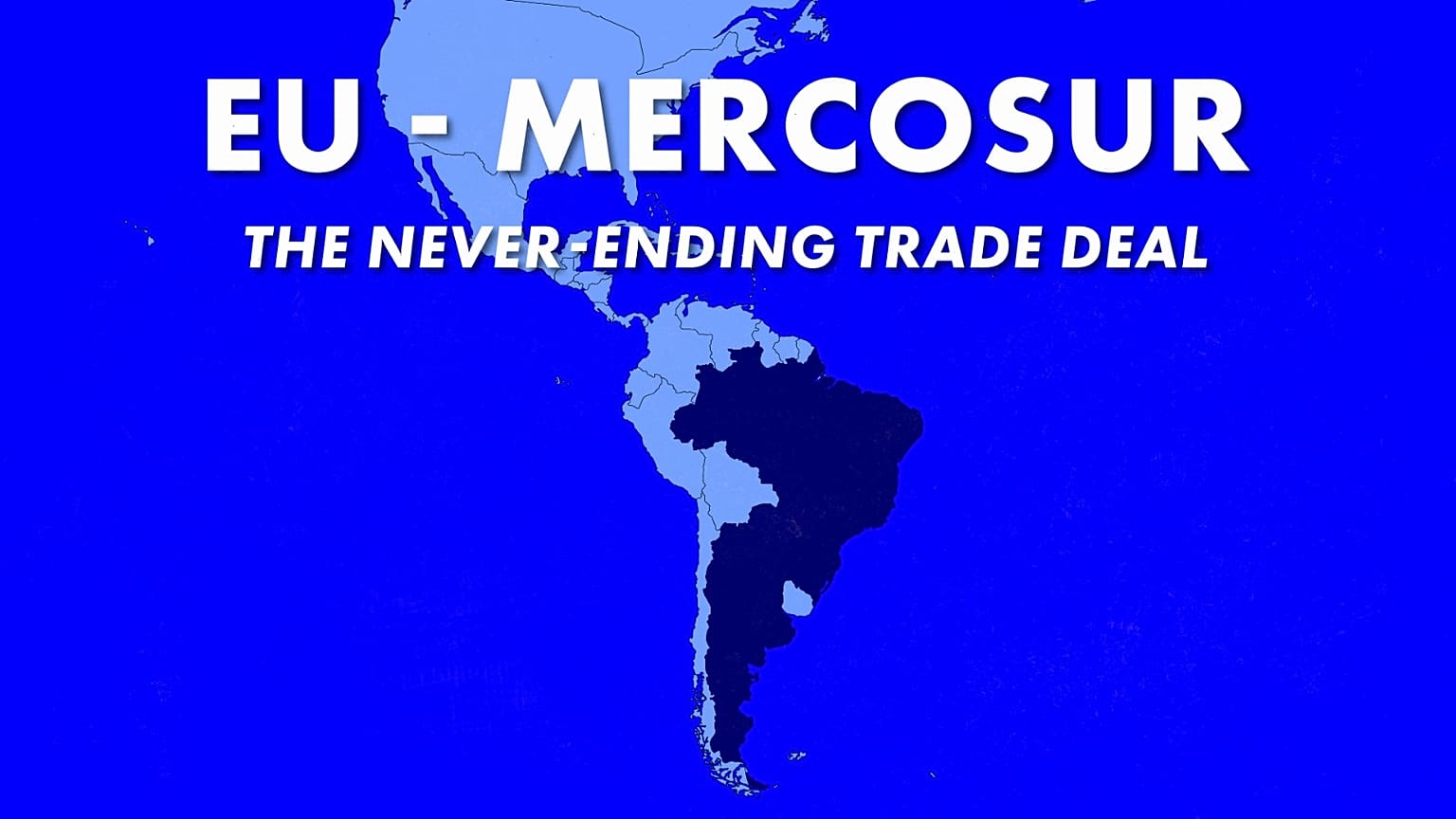Politics
EU-Mercosur Trade Agreement Faces Opposition Ahead of Ratification

The EU-Mercosur Partnership Agreement, which aims to establish the world’s largest free trade zone, is poised for ratification after 25 years of negotiations. The European Commission has recently introduced a proposal to move forward with the agreement, which now faces significant opposition from various sectors within the EU.
Under the agreement, high export tariffs on EU products to the Mercosur bloc—comprising Argentina, Brazil, Paraguay, and Uruguay—would be eliminated or drastically reduced. Currently, tariffs on goods such as cars (35%), wines and spirits (up to 35%), cheese (28%), and machinery (up to 20%) hinder EU access to a market of 780 million consumers, which represents 25% of global trade.
Despite the potential benefits, resistance has emerged from farmers, environmentalists, and some members of the European Parliament. Peggy Corlin, a senior reporter for Euronews, highlighted the risks of ratification, stating, “If the entire agreement is ratified by national parliaments, some of them may oppose the text, as it happened already in the past.” To expedite the process, the European Commission has proposed separating the trade elements from the political ones. This means the Council of Member States will vote on the agreement by qualified majority, while the European Parliament will require only a simple majority.
Concerns about the impact on agriculture have been pronounced, particularly from member states like France, Poland, and Italy, which heavily depend on their agro-industrial sectors. To address these apprehensions, the European Commission has included safeguards in a new legal text attached to the deal. These measures involve quotas limiting imports of sensitive products, such as beef, poultry, sugar, rice, and honey. Additionally, a fund of €6.3 billion has been proposed to support farmers affected by market fluctuations.
Geopolitical Context Influences Trade Dynamics
The geopolitical landscape has shifted dramatically since the inception of negotiations with Mercosur. Karel Lanoo, chief executive of the Centre for European Policy Studies (CEPS), noted that “the most important trading partner for Latin America has become China.” He emphasized the necessity of concluding the EU-Mercosur agreement to enhance the EU’s status as a significant trading partner in the region.
The recent EU-US trade agreement, which raised tariffs to 15% on approximately 70% of EU goods exported to the United States, has further complicated matters. Lanoo remarked that this has led to perceptions of the EU as an unreliable partner. The Mercosur deal, therefore, presents an opportunity for the EU to diversify its trading relationships and reduce its dependency on Chinese imports, which have grown significantly over the years.
Resistance to the agreement continues to mount, particularly from a faction of left-wing Members of the European Parliament (MEPs) who are spearheading a draft resolution aimed at blocking the ratification process. These MEPs have expressed dissatisfaction with the proposed safeguards and the overall direction of the agreement.
As the ratification process unfolds, it remains clear that the EU-Mercosur Partnership Agreement could reshape trade dynamics significantly, but its future hinges on overcoming internal opposition and addressing the concerns of various stakeholders.
-

 Health3 months ago
Health3 months agoNeurologist Warns Excessive Use of Supplements Can Harm Brain
-

 Health3 months ago
Health3 months agoFiona Phillips’ Husband Shares Heartfelt Update on Her Alzheimer’s Journey
-

 Science1 month ago
Science1 month agoBrian Cox Addresses Claims of Alien Probe in 3I/ATLAS Discovery
-

 Science1 month ago
Science1 month agoNASA Investigates Unusual Comet 3I/ATLAS; New Findings Emerge
-

 Science4 weeks ago
Science4 weeks agoScientists Examine 3I/ATLAS: Alien Artifact or Cosmic Oddity?
-

 Entertainment4 months ago
Entertainment4 months agoKerry Katona Discusses Future Baby Plans and Brian McFadden’s Wedding
-

 Science4 weeks ago
Science4 weeks agoNASA Investigates Speedy Object 3I/ATLAS, Sparking Speculation
-

 Entertainment4 months ago
Entertainment4 months agoEmmerdale Faces Tension as Dylan and April’s Lives Hang in the Balance
-

 World3 months ago
World3 months agoCole Palmer’s Cryptic Message to Kobbie Mainoo Following Loan Talks
-

 Science4 weeks ago
Science4 weeks agoNASA Scientists Explore Origins of 3I/ATLAS, a Fast-Moving Visitor
-

 Entertainment4 months ago
Entertainment4 months agoLove Island Star Toni Laite’s Mother Expresses Disappointment Over Coupling Decision
-

 Entertainment3 months ago
Entertainment3 months agoMajor Cast Changes at Coronation Street: Exits and Returns in 2025









